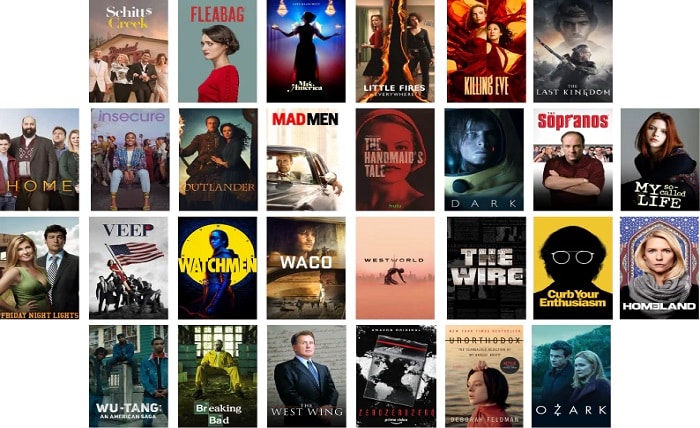The Everlasting Charm of TV Shows: A Deep Dive into Popular Culture

Introduction
Television has been an integral part of modern life, bringing us stories that entertain, inspire, and even shape societal norms. With the advent of streaming platforms, TV shows have reached a new zenith, offering audiences an unprecedented variety of genres and storytelling techniques. Whether it’s a thrilling crime drama or a laugh-out-loud sitcom, TV shows captivate us by weaving intricate narratives with compelling characters.
The Evolution of TV Shows Through the Decades
TV shows have undergone tremendous transformation since their inception. In the 1950s, family-friendly sitcoms like I Love Lucy dominated, setting the stage for decades of TV show innovation. The 80s brought us unforgettable primetime soap operas like Dallas, while the 2000s introduced groundbreaking series like Breaking Bad. Each era of TV shows reflects societal changes, technological advancements, and shifts in viewer preferences.
Why TV Shows Are More Popular Than Ever
The surge in TV shows’ popularity can be attributed to accessible streaming services, shorter episode formats, and quality storytelling. Platforms like Netflix and Hulu have revolutionized how we consume TV shows, allowing for binge-watching sessions that weren’t possible in the era of cable TV. This convenience has made TV shows a dominant form of entertainment globally.
The Appeal of Different TV Show Genres
TV shows cater to diverse audiences through a plethora of genres. Comedy shows like Friends and The Office offer a perfect escape from daily stress, while fantasy TV shows like Game of Thrones transport us to magical worlds. Similarly, crime dramas like True Detective keep us on the edge of our seats. No matter your preference, there’s a TV show genre for everyone.
Iconic TV Shows That Defined Pop Culture
Certain TV shows have left an indelible mark on pop culture. Shows like The Simpsons redefined satire, while Stranger Things brought 80s nostalgia back into the mainstream. These TV shows not only entertained but also sparked trends, inspired memes, and became cultural touchstones.
How Streaming Platforms Revolutionized TV Shows
Streaming platforms have disrupted traditional television by making TV shows available anytime, anywhere. Services like Amazon Prime and Disney+ have invested heavily in original content, resulting in TV shows like The Boys and The Mandalorian that are as cinematic as blockbuster films. This shift has elevated the status of TV shows to rival Hollywood movies.
The Art of Storytelling in Modern TV Shows
One of the most compelling aspects of TV shows is their ability to tell complex, layered stories. Unlike movies, TV shows have the luxury of time, allowing for deeper character development and intricate plotlines. Shows like The Crown and Succession exemplify how TV shows can tackle profound themes with finesse and depth.
TV Shows and Their Global Influence
TV shows are not just a Western phenomenon; they have a global appeal. Korean dramas like Crash Landing on You and Spanish TV shows like Money Heist have garnered massive international fanbases. These TV shows demonstrate the universal power of storytelling, transcending language and cultural barriers.
The Role of Fandoms in Shaping TV Shows
Fandoms play a crucial role in the success of TV shows. From online forums to fan art and conventions, viewers’ engagement can turn a show into a cultural phenomenon. TV shows like Supernatural and Doctor Who enjoy cult-like followings, proving the importance of loyal fanbases in sustaining long-running series.
The Future of TV Shows: What Lies Ahead?
The future of TV shows looks promising, with advancements in technology and changes in consumer behavior paving the way for new formats. Virtual reality and interactive TV shows, such as Black Mirror: Bandersnatch, hint at how innovation will shape the medium. As technology evolves, TV shows will continue to adapt and redefine storytelling.
How TV Shows Impact Society
TV shows do more than entertain; they often reflect and influence societal values. For instance, shows like Orange Is the New Black have sparked conversations about gender and social justice. By tackling relevant issues, TV shows contribute to cultural discourse, encouraging viewers to think critically about the world around them.
Conclusion
TV shows have stood the test of time, evolving to meet the demands of ever-changing audiences. From black-and-white classics to binge-worthy streaming hits, the allure of TV shows lies in their ability to connect, inspire, and entertain. As technology and storytelling techniques continue to advance, TV shows will undoubtedly remain at the forefront of global entertainment.
FAQs
1. What are the most popular TV shows of all time?
Some of the most popular TV shows include Friends, Breaking Bad, Game of Thrones, and The Sopranos. These shows have garnered critical acclaim and massive fanbases worldwide.
2. How do streaming platforms choose TV shows to produce?
Streaming platforms use data analytics to understand viewer preferences, investing in TV shows that are likely to resonate with their audience. They also prioritize original content to stand out in a competitive market.
3. Are TV shows better than movies?
TV shows and movies serve different purposes. While TV shows allow for long-term character development and storytelling, movies often deliver a more condensed and cinematic experience. It depends on individual preferences.
4. Why are TV shows getting shorter in episode length?
Shorter episodes cater to modern viewers’ busy schedules and shorter attention spans. This format, popularized by streaming services, allows audiences to watch TV shows more conveniently.
5. What makes a TV show successful?
A TV show’s success hinges on a strong script, compelling characters, quality production, and audience engagement. Shows that resonate emotionally or tackle relevant themes often achieve enduring popularity.




